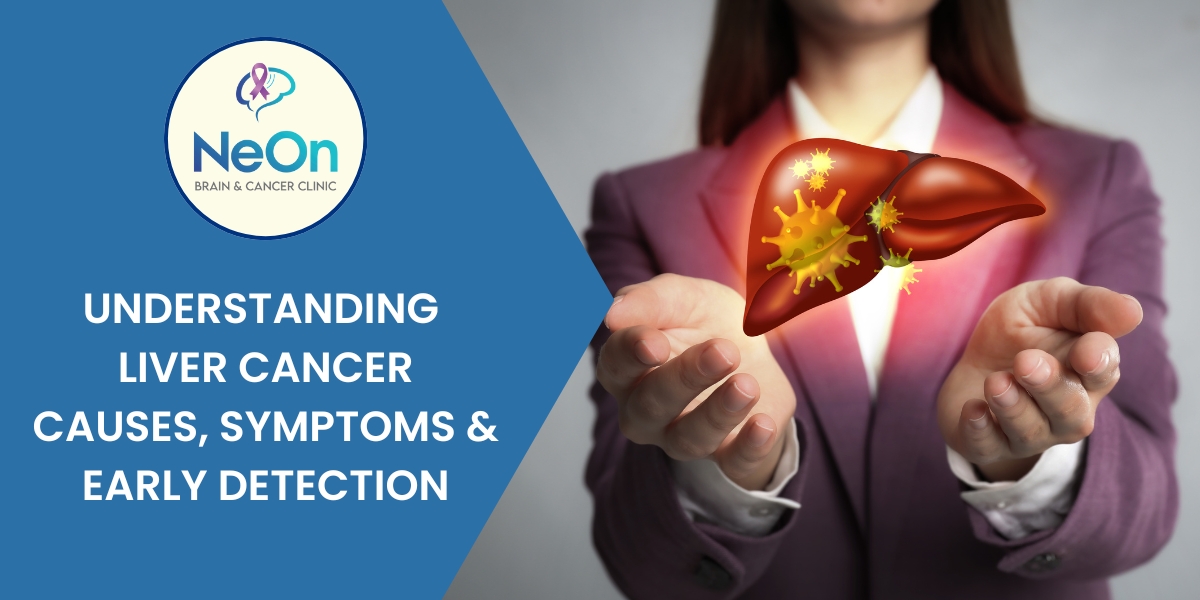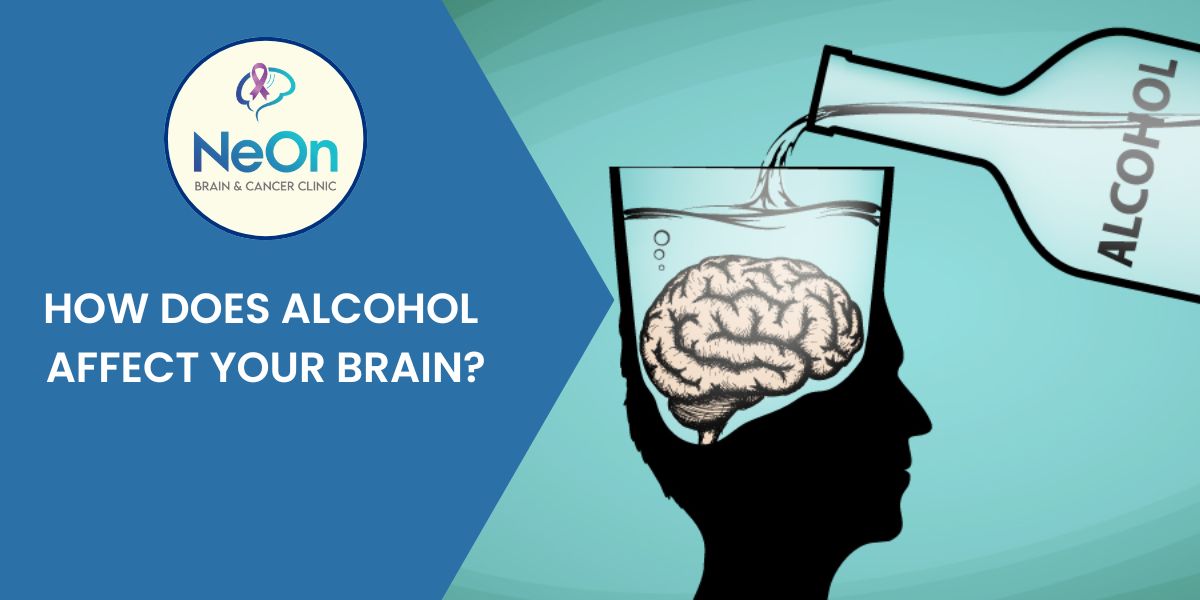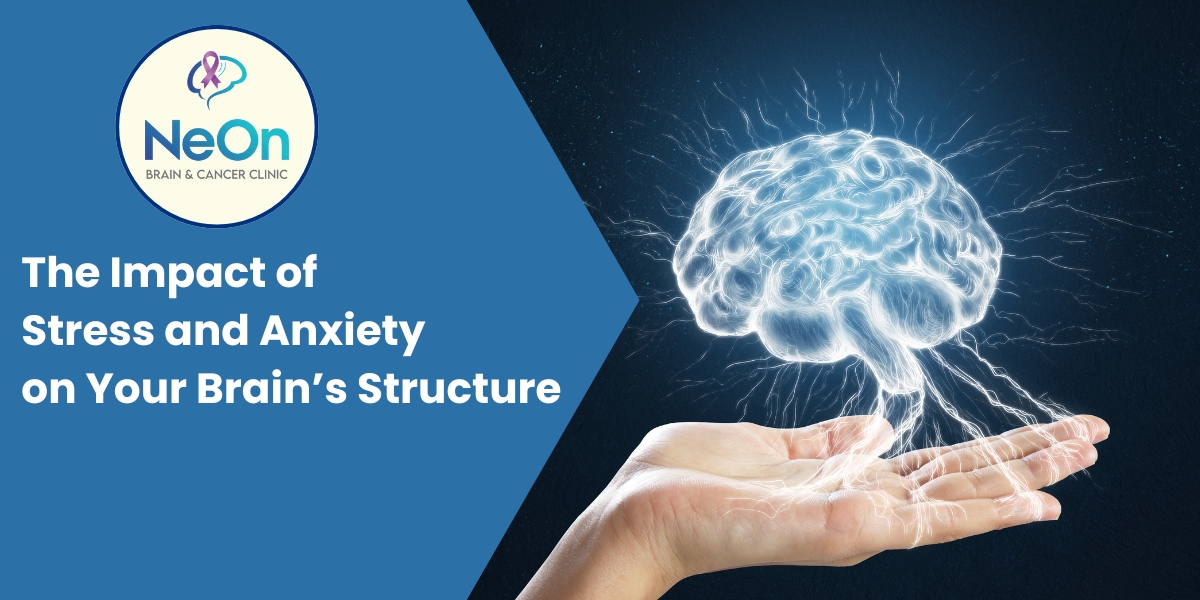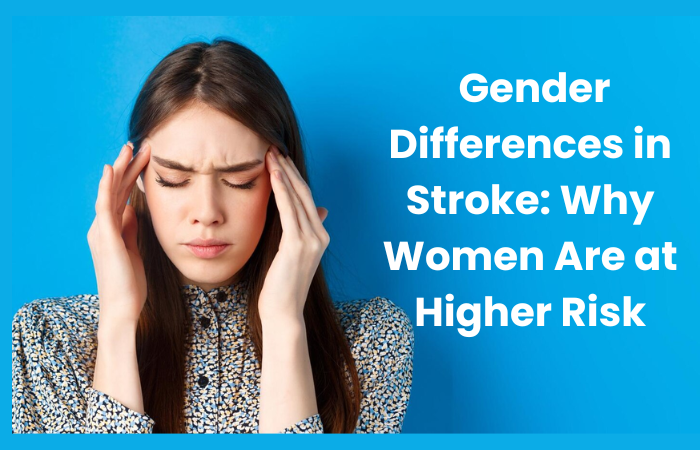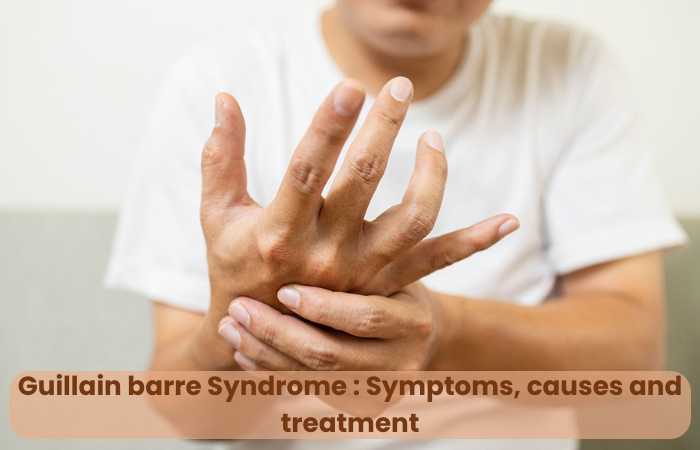For most people, memories are precious they hold the story of our lives, the faces of loved ones, and the experiences that shape who we are. But for someone living with dementia, these memories can slowly fade away, replaced by confusion, frustration, and uncertainty. Dementia is not just about forgetting names or misplacing objects — it is a progressive neurological condition that deeply affects the brain’s ability to think, remember, and function in daily life. As a neurologist, I often meet patients and families struggling to understand why these changes happen and what they mean for the future. In this article, we will explore how dementia affects the brain, why it leads to memory loss, and what can be done to manage its progression. Understanding Dementia Dementia is not a single disease but a group of brain disorders that interfere with memory, thinking, communication, and daily functioning. The most common type is Alzheimer’s disease, followed by vascular dementia, Lewy body dementia, and frontotemporal dementia. While each type has unique characteristics, they all involve damage to brain cells that disrupts the communication between different brain regions. How Dementia Affects the Brain The brain is a complex organ with billions of nerve cells (neurons) working together to process thoughts, store memories, and control bodily functions. In dementia, these neurons are damaged or destroyed, leading to the loss of brain tissue over time. Here’s what happens: Damage to the Hippocampus – The Memory Center The hippocampus, located in the brain’s temporal lobe, plays a vital role in forming new memories. In Alzheimer’s disease and many other dementias, this is one of the first areas to be affected, explaining why short-term memory loss is an early symptom. Shrinkage of Brain Regions As dementia progresses, parts of the brain begin to shrink (atrophy). This affects areas responsible for thinking, language, and reasoning, making daily tasks more challenging. Disruption of Brain Communication Neurons communicate through chemical signals. In dementia, the production and balance of these chemicals are disrupted, preventing smooth transmission of information. Plaque and Tangle Formation In Alzheimer’s, abnormal protein deposits (amyloid plaques) and twisted fibers (tau tangles) build up inside the brain, damaging neurons and blocking their communication pathways. Impact on the Prefrontal Cortex The prefrontal cortex controls decision-making, planning, and personality. When damaged, it can lead to changes in behavior, mood swings, and poor judgment. Why Dementia Causes Memory Loss Memory is not stored in one place; it is a network of connections across the brain. When dementia damages these connections especially in the hippocampus and temporal lobes — the brain loses its ability to store new information or retrieve old ones. Early in dementia, people may forget recent conversations or appointments. As it advances, even long-term memories such as childhood events or the names of close family members — can fade. Stages of Memory Loss in Dementia Mild Stage – Occasional forgetfulness, misplacing items, difficulty finding words. Moderate Stage – Forgetting recent events, trouble recognizing familiar places, confusion about time. Severe Stage – Losing awareness of surroundings, inability to recognize loved ones, requiring full-time care. Other Cognitive Changes Caused by Dementia While memory loss is the most recognized symptom, dementia also affects: Language skills – Difficulty speaking or understanding. Attention span – Trouble focusing on tasks. Problem-solving abilities – Difficulty managing finances, cooking, or planning. Emotional regulation – Irritability, anxiety, or depression. Living with Dementia – A Holistic Approach Although there is currently no cure for most types of dementia, early diagnosis and treatment can help slow progression and improve quality of life. Management may include: Medications – To manage symptoms and slow cognitive decline. Cognitive therapy – Exercises to strengthen memory and thinking skills. Lifestyle changes – Healthy diet, regular exercise, and social engagement. Family education – Training caregivers to provide supportive, patient-centered care. Case Insight – The Power of Early Detection One of my patients, a retired teacher, began experiencing mild forgetfulness and difficulty managing her daily schedule. Her family initially thought it was just part of aging, but we diagnosed her with early-stage Alzheimer’s. With medication, mental stimulation exercises, and family support, she maintained her independence for years. This case highlights why recognizing the early signs and seeking medical help is so important. Dementia deeply affects the brain’s structure and function, leading to progressive memory loss and cognitive decline. Understanding how it works is the first step toward managing it effectively and providing compassionate care to those affected. As Dr. Sadique Pathan – Best Neurologist in Hadapsar, my goal is to help patients and families navigate this journey with medical expertise, emotional support, and practical guidance. While we may not yet have a cure, we do have strategies to help preserve dignity, independence, and quality of life for as long as possible. Frequently Asked Questions (FAQs) Is memory loss always a sign of dementia? No. Memory loss can be caused by stress, depression, vitamin deficiencies, or other medical conditions. A neurologist can determine the cause. Can dementia be reversed? Most types of dementia, like Alzheimer’s, cannot be reversed, but early treatment can slow progression. How is dementia diagnosed? Through medical history, cognitive tests, brain imaging, and sometimes blood tests to rule out other conditions. At what age does dementia usually start? Most cases occur after age 65, but early-onset dementia can appear as early as the 40s or 50s. How can I reduce my risk of dementia? Maintain a healthy lifestyle — balanced diet, regular physical activity, mental exercises, and controlling conditions like diabetes and high blood pressure.
Understanding Liver Cancer: Causes, Symptoms & Early Detection
Liver cancer is one of the most rapidly rising forms of cancer worldwide, and sadly, it’s often detected only in its advanced stages. Because early symptoms are subtle or completely absent, many individuals don’t know they have liver cancer until it has already progressed. Yet, with proper education and awareness, early detection and preventive measures can save lives. In this detailed guide, we’ll help you understand what liver cancer is, what causes it, what warning signs to look out for, and why early detection plays a life-saving role in fighting this silent disease. What Is Liver Cancer? The liver is a vital organ that filters toxins from the blood, aids in digestion, regulates hormones, and stores energy. Liver cancer occurs when healthy liver cells mutate and begin to grow uncontrollably. These abnormal cells can form tumors, which interfere with the liver’s normal function. There are two main types: Primary Liver Cancer – Starts in the liver. The most common type is Hepatocellular Carcinoma (HCC). Secondary (Metastatic) Liver Cancer – Starts in another part of the body and spreads to the liver (e.g., from the colon, lungs, or breast). Major Causes and Risk Factors Liver cancer usually develops after long-term damage to the liver. The most common underlying conditions include: 1. Chronic Hepatitis B and C These viral infections cause long-standing inflammation and scarring of liver tissue, creating an environment for cancer cells to develop. 2. Cirrhosis Cirrhosis occurs when healthy liver tissue is replaced with scar tissue due to injury, alcohol abuse, or fatty liver disease. It significantly increases cancer risk. 3. Non-Alcoholic Fatty Liver Disease (NAFLD) Due to poor diet, obesity, and sedentary lifestyles, NAFLD is now a leading liver disease. It can progress to non-alcoholic steatohepatitis (NASH) and even liver cancer. 4. Alcohol Overconsumption Long-term alcohol abuse is a major cause of liver damage and cirrhosis, both of which heighten cancer risk. 5. Aflatoxin Exposure Aflatoxins are toxic substances produced by fungi found in improperly stored grains and nuts. Prolonged exposure can damage liver DNA and lead to cancer. 6. Genetic and Metabolic Conditions Diseases like hemochromatosis (iron overload), Wilson’s disease, and alpha-1 antitrypsin deficiency can also predispose a person to liver cancer. Signs and Symptoms to Watch For Liver cancer often remains silent in the early stages. However, as the tumor grows, you may start to notice: Unexplained weight loss Loss of appetite or early fullness after meals Persistent fatigue or weakness Upper right abdominal pain or discomfort Jaundice (yellowing of skin and eyes) Dark urine and pale stools Swelling in the abdomen (ascites) Nausea and vomiting Some people may also experience fever, itchy skin, or enlarged liver/spleen upon examination. These signs should never be ignored, especially in those with known liver conditions. The Importance of Early Detection Early-stage liver cancer often offers curative treatment options, such as surgical removal of tumors or liver transplantation. Late-stage liver cancer, unfortunately, is more challenging to manage and is often treated with targeted therapies or palliative care. Who Should Get Screened? You should undergo regular screening if you: Have chronic Hepatitis B or C Have liver cirrhosis of any cause Have a family history of liver cancer Have NAFLD or alcohol-related liver disease Are over age 50 and in a high-risk group Screening & Diagnostic Tools Ultrasound Scan: A non-invasive test to look for tumors or irregularities. Alpha-Fetoprotein (AFP) Blood Test: A tumor marker that may be elevated in liver cancer. CT or MRI Scan: Provides a clearer image of the liver’s size, structure, and any tumor growth. Liver Biopsy: In some cases, a sample of liver tissue is taken for lab analysis to confirm cancer. Treatment Options for Liver Cancer Treatment depends on the stage, overall health, and whether the cancer has spread. Common approaches include: Surgical Resection: Removal of the tumor from the liver. Liver Transplant: Especially in patients with extensive damage but limited tumor size. Radiofrequency Ablation (RFA): Using heat to destroy cancer cells. Targeted Therapy and Immunotherapy: Helps block cancer growth on a cellular level. Chemotherapy or Radiation Therapy: For advanced cases or symptom control. In some advanced cases, liver cancer or liver failure can affect the brain leading to hepatic encephalopathy, a condition marked by confusion, personality changes, or even coma. Oncologist like Dr. Asma Pathan, though primarily in treating cancer related to women, like breast cancer, often assist in managing these liver-related oncanological complications. Liver cancer is often silent in early stages but deadly if untreated. Major risk factors include hepatitis B/C, cirrhosis, alcohol use, and fatty liver disease. Symptoms like weight loss, jaundice, and abdominal swelling should never be ignored. Regular screening and liver check-ups are crucial for at-risk individuals. Oncanologist may play a supportive role in managing brain complications of liver failure. Liver Cancer Awareness and Early Detection “Liver cancer may progress quietly, but it leaves behind a loud impact. Regular screening and early detection can completely change the outcome for patients. It’s not just about managing the disease, but giving people the best chance at long-term health and survival.”
How does alcohol affect your brain?
Alcohol is a common social beverage, but its effects on the brain can be profound and long-lasting. Whether consumed occasionally or excessively, alcohol interacts with the brain in ways that impact mood, cognition, and overall neurological health. How Alcohol Impacts Brain Function 1. Immediate Effects of Alcohol on the Brain When you consume alcohol, it quickly enters the bloodstream and reaches the brain, altering neurotransmitter activity. Some immediate effects include: Slowed Brain Function – Alcohol suppresses excitatory neurotransmitters (like glutamate) and enhances inhibitory ones (like GABA), leading to slowed reflexes, slurred speech, and impaired coordination. Mood Changes – Alcohol triggers dopamine release, creating temporary euphoria, followed by mood swings or depression as its effects wear off. Impaired Judgment & Memory – Even small amounts can weaken decision-making and short-term memory. 2. Long-Term Effects of Alcohol on the Brain Chronic alcohol consumption can cause lasting damage, including: Brain Shrinkage (Atrophy) – Prolonged drinking reduces brain volume, affecting memory and cognitive function. Neurotransmitter Imbalance – Long-term use disrupts serotonin and dopamine levels, increasing risks of anxiety and depression. Wernicke-Korsakoff Syndrome – A severe condition caused by thiamine (Vitamin B1) deficiency, leading to confusion, memory loss, and coordination problems. Increased Risk of Dementia – Heavy drinking accelerates cognitive decline and raises dementia risk. 3. Alcohol Withdrawal & Brain Health Sudden alcohol cessation after prolonged use can lead to withdrawal symptoms like tremors, seizures, and even Delirium Tremens (DTs), a life-threatening condition. Medical supervision is crucial for safe detox. Can the Brain Recover from Alcohol Damage? The brain has some ability to heal with abstinence: Neuroplasticity helps repair connections over time. Improved Cognitive Function is seen in recovering individuals after months of sobriety. Proper Nutrition & Therapy aid recovery, especially under expert guidance. However, severe damage may be irreversible, emphasizing the need for moderation or abstinence. Expert Advice from Dr. Sadique Pathan – Neurologist in Pune “Alcohol affects the brain in multiple ways, from temporary impairment to permanent damage. While occasional drinking may not cause harm, excessive consumption poses serious risks, including memory loss, mood disorders, and neurological decline. If you or a loved one are struggling with alcohol-related brain issues, seeking professional help is essential for recovery.” Dr. Sadique Pathan, a renowned neurologist in Pune, specializes in diagnosing and treating alcohol-related neurological disorders. With advanced expertise in brain health, he provides personalized care for patients dealing with cognitive impairments, neuropathy, and addiction-related complications. Understanding how alcohol affects the brain is crucial for making informed choices about consumption. While moderate drinking may not severely harm everyone, excessive use can lead to irreversible damage. If you’re concerned about alcohol’s impact on your brain health, consult a specialist like Dr. Sadique Pathan, the best neurologist in Pune, for expert evaluation and treatment.
Sleep and Brain Health: How Poor Sleep Accelerates Neurodegeneration
Sleep is a vital biological function that plays a crucial role in maintaining brain health. Poor sleep quality or chronic sleep deprivation can accelerate neurodegeneration, increasing the risk of conditions like Alzheimer’s disease, Parkinson’s disease, and other cognitive impairments. The Link Between Sleep and Brain Health The brain undergoes essential restorative processes during sleep, including: Memory Consolidation – Sleep helps solidify memories and learning. Toxin Clearance – The glymphatic system removes harmful proteins like beta-amyloid (linked to Alzheimer’s). Neural Repair – Sleep promotes cellular repair and reduces inflammation. When sleep is disrupted, these processes are impaired, leading to cognitive decline over time. How Poor Sleep Accelerates Neurodegeneration 1. Increased Accumulation of Toxic Proteins Lack of sleep reduces the efficiency of the glymphatic system, allowing toxic proteins like beta-amyloid and tau to build up. Studies show that even one night of poor sleep increases amyloid levels in the brain. 2. Chronic Inflammation Sleep deprivation triggers systemic inflammation, damaging neurons and accelerating brain aging. Elevated inflammatory markers are linked to Alzheimer’s and Parkinson’s disease. 3. Oxidative Stress Poor sleep increases oxidative stress, which damages brain cells and contributes to neurodegeneration. 4. Impaired Synaptic Plasticity Sleep is essential for synaptic pruning and strengthening neural connections. Chronic sleep loss weakens cognitive function, leading to memory problems and reduced mental sharpness. Signs That Poor Sleep Is Affecting Your Brain Memory lapses and difficulty concentrating Mood swings, irritability, or depression Slower reaction times and poor decision-making Increased risk of neurodegenerative disorders Tips to Improve Sleep for Better Brain Health 1. Maintain a Consistent Sleep Schedule – Go to bed and wake up at the same time daily (even on weekends). 2. Create a Sleep-Friendly Environment Keep the bedroom dark, cool, and quiet. Avoid screens (blue light) at least 1 hour before bed. 3. Limit Caffeine and Alcohol – Avoid caffeine after 2 PM and reduce alcohol intake, as it disrupts deep sleep. 4. Exercise Regularly – Physical activity improves sleep quality but avoid intense workouts close to bedtime. 5. Manage Stress – Practice meditation, deep breathing, or yoga to relax the mind before sleep. 6. Seek Professional Help if Needed – If you suffer from chronic insomnia or sleep apnea, consult a neurologist or sleep specialist. Meet Dr. Sadique Pathan – Best Neurologist in Pune Quality sleep is non-negotiable for brain health. Poor sleep doesn’t just leave you tired—it accelerates neurodegeneration, increasing the risk of dementia and other cognitive disorders. By adopting healthy sleep habits, you can protect your brain and enhance long-term mental well-being. If you’re experiencing persistent sleep issues or cognitive decline, consult a neurologist for a thorough evaluation. For expert care in neurology, stroke, dementia, and brain health, visit Neon Brain & Cancer Clinic in Pune.
Parkinson’s Disease: Symptoms, Causes, and Emerging Treatments
Parkinson’s Disease (PD) is a progressive neurodegenerative disorder that affects movement and cognitive function. It develops due to the loss of dopamine-producing neurons in the brain. While there is no cure yet, early diagnosis and advanced treatments can significantly improve quality of life. Symptoms of Parkinson’s Disease Parkinson’s symptoms develop gradually and worsen over time. Key signs include: Motor Symptoms Tremors (shaking in hands, fingers, or limbs) Bradykinesia (slowed movements) Muscle rigidity (stiffness in arms or legs) Postural instability (balance problems) Gait abnormalities (shuffling walk) Non-Motor Symptoms Cognitive decline (memory issues, dementia) Mood disorders (depression, anxiety) Sleep disturbances (insomnia, REM sleep disorder) Loss of smell (anosmia) Autonomic dysfunction (constipation, low blood pressure) Causes and Risk Factors The exact cause of Parkinson’s is unknown, but research suggests a combination of factors: Genetic mutations (LRRK2, PARK7 genes) Environmental triggers (pesticides, heavy metals) Age (most cases occur after 60) Gender (men are more likely to develop PD) Brain changes (alpha-synuclein protein buildup) Emerging Treatments for Parkinson’s Disease While traditional treatments like Levodopa, Deep Brain Stimulation (DBS), and physical therapy remain effective, new advancements offer hope: Gene Therapy – Targeting genetic mutations to slow progression. Stem Cell Therapy – Replacing damaged neurons with healthy ones. Immunotherapy – Clearing toxic protein buildup in the brain. Personalized Medicine – Tailoring treatment based on genetic profiles. Wearable Devices – Monitoring symptoms in real-time for better management. Why Choose Dr. Sadique Pathan for Parkinson’s Treatment in Hadapsar, Pune? If you or a loved one is experiencing Parkinson’s symptoms, consulting a specialist is crucial. Dr. Sadique Pathan is a leading Parkinson’s Disease doctor in Hadapsar, Pune, offering: – Accurate diagnosis using advanced neurological assessments – Personalized treatment plans (medication, therapy, lifestyle modifications) – Support for caregivers (education, coping strategies) – Follow-up care to monitor disease progression Book an Appointment Today! Early intervention can make a significant difference in managing Parkinson’s Disease. Contact Dr. Sadique Pathan, the best Parkinson’s specialist in Hadapsar, Pune, for expert care and support.
The Impact of Stress and Anxiety on Your Brain’s Structure
Stress and anxiety are common experiences in today’s fast-paced world. While occasional stress can be motivating, chronic stress and anxiety can have profound effects on the brain’s structure and function. Understanding these changes can help individuals take proactive steps to protect their mental health. How Stress and Anxiety Affect the Brain 1. Shrinking of the Hippocampus The hippocampus, a critical brain region for memory and learning, is highly sensitive to stress. Chronic stress can reduce its volume, impairing cognitive functions and increasing the risk of memory-related disorders like Alzheimer’s disease. 2. Overactivity in the Amygdala The amygdala, responsible for processing fear and emotions, becomes hyperactive under prolonged stress. This can lead to heightened anxiety, emotional instability, and difficulty in managing stress responses. 3. Disruption of Neurotransmitters Stress alters the balance of key neurotransmitters like serotonin, dopamine, and cortisol. An imbalance can contribute to mood disorders such as depression and anxiety. 4. Reduced Prefrontal Cortex Function The prefrontal cortex, which governs decision-making and impulse control, can weaken under chronic stress. This may result in poor concentration, impulsivity, and difficulty in problem-solving. 5. Increased Risk of Neurodegenerative Diseases Long-term stress accelerates brain aging and may increase susceptibility to neurodegenerative conditions like dementia. How to Protect Your Brain from Stress and Anxiety Practice Mindfulness & Meditation – Helps reduce amygdala activity and strengthens the prefrontal cortex. Exercise Regularly – Boosts brain-derived neurotrophic factor (BDNF), promoting neuron growth. Get Enough Sleep – Essential for brain repair and emotional regulation. Maintain a Healthy Diet – Omega-3 fatty acids and antioxidants support brain health. Seek Professional Help – Therapy and medical intervention can help manage chronic stress. Expert Neurological Care in Pune If you or a loved one is struggling with stress-related cognitive issues, consult Dr. Sadique Pathan, a leading Neurologist in Pune. With extensive experience in diagnosing and treating brain disorders.
The Link Between MS and Other Neurological Disorders
Multiple Sclerosis (MS) is a chronic neurological disorder that affects the central nervous system (CNS), causing a wide range of symptoms due to the immune system attacking the protective myelin sheath around nerves. MS often shares symptoms and underlying mechanisms with other neurological disorders, making it essential to differentiate and understand its connections with conditions like Parkinson’s disease, Alzheimer’s disease, and neuropathies. If you or a loved one is experiencing neurological symptoms, consulting a neurologist in Hadapsar, such as Dr. Sadique Pathan at Noble Hospital, can be the first step towards accurate diagnosis and management. Understanding Multiple Sclerosis MS is an autoimmune disorder where the body’s immune system mistakenly attacks myelin, leading to inflammation, nerve damage, and disrupted communication between the brain and the rest of the body. The condition manifests through a variety of symptoms such as muscle weakness, vision problems, balance issues, and cognitive decline. The exact cause of MS is still unknown, but genetic and environmental factors play a significant role. How MS Connects with Other Neurological Disorders Since MS affects the CNS, its symptoms can mimic or overlap with other neurological disorders. Understanding these connections helps neurologists differentiate MS from other conditions and develop targeted treatment plans. 1. MS and Parkinson’s Disease Parkinson’s disease is a progressive disorder affecting movement and is caused by dopamine-producing neurons’ degeneration. While MS and Parkinson’s differ in their pathophysiology, both conditions can cause tremors, muscle stiffness, and coordination difficulties. Studies have suggested that neuroinflammation, which is a hallmark of MS, might also play a role in Parkinson’s disease progression. Additionally, some MS patients may develop Parkinsonian symptoms due to lesions in brain areas involved in movement control. 2. MS and Alzheimer’s Disease Both MS and Alzheimer’s disease can lead to cognitive decline. While Alzheimer’s primarily affects memory and cognitive function due to the accumulation of amyloid plaques and neurofibrillary tangles, MS patients can also experience cognitive impairments such as memory loss, difficulty concentrating, and slowed processing speed. Inflammation in the brain, which is common in MS, has been linked to neurodegeneration, making researchers investigate potential overlaps between MS and Alzheimer’s in terms of disease mechanisms. 3. MS and Neuropathies Peripheral neuropathy is a condition that results from nerve damage outside the brain and spinal cord. While MS primarily affects the CNS, some MS patients may experience neuropathy-like symptoms, including numbness, tingling, and burning sensations. This overlap can lead to diagnostic confusion, but a skilled neurologist in Hadapsar can perform specific tests to distinguish between MS-related nerve damage and peripheral neuropathies caused by diabetes, infections, or vitamin deficiencies. 4. MS and Epilepsy Epilepsy, characterized by recurrent seizures, has been observed in some MS patients. The presence of MS-related brain lesions may disrupt normal electrical activity, leading to seizures. Studies indicate that MS patients are at a higher risk of developing epilepsy compared to the general population, reinforcing the need for early detection and specialized care from a neurologist. 5. MS and Stroke Though stroke and MS are distinct conditions, they share common risk factors such as inflammation and vascular dysfunction. MS lesions can sometimes mimic stroke symptoms, leading to diagnostic challenges. Moreover, long-term MS may increase the risk of stroke due to associated cardiovascular issues, necessitating proactive management by neurologists to reduce stroke risks in MS patients. Diagnosis and Management Given the overlapping symptoms between MS and other neurological disorders, accurate diagnosis is crucial. Neurologists rely on MRI scans, cerebrospinal fluid analysis, and clinical assessments to distinguish MS from similar conditions. Once diagnosed, MS management includes immunomodulatory therapies, physical therapy, and lifestyle modifications to help patients maintain their quality of life. Seeking Expert Care If you or a loved one experiences symptoms such as unexplained numbness, weakness, coordination problems, or cognitive changes, it is essential to seek medical advice. A neurologist in Hadapsar can provide comprehensive evaluations and tailor treatments based on individual needs. Early diagnosis and appropriate intervention can significantly improve outcomes for MS and other neurological conditions. Multiple Sclerosis shares connections with various neurological disorders, making accurate diagnosis and specialized care essential. While MS affects the CNS, its symptoms often overlap with conditions like Parkinson’s disease, Alzheimer’s, neuropathies, epilepsy, and stroke. If you are seeking expert neurological care, consulting Dr. Sadique Pathan at Noble Hospital, a leading neurologist in Hadapsar, can help in managing symptoms and improving overall well-being.
Gender Differences in Stroke: Why Women Are at Higher Risk
Stroke is a leading cause of disability and death worldwide, but did you know that women face a significantly higher risk than men? While stroke can affect anyone, biological, hormonal, and lifestyle factors make women more vulnerable. Understanding these gender differences can help in early prevention and better management of stroke risks. 1. Hormonal Influences Estrogen plays a crucial role in regulating blood circulation. However, fluctuations in hormone levels—due to pregnancy, birth control pills, and hormone replacement therapy (HRT)—can increase the likelihood of stroke. Women who use contraceptive pills, especially those who smoke or have high blood pressure, are at an even greater risk. 2. Pregnancy-Related Risks Pregnancy can lead to complications such as preeclampsia, gestational diabetes, and high blood pressure—all of which elevate stroke risk. Women who develop these conditions during pregnancy need regular monitoring even after childbirth. 3. Higher Life Expectancy Women generally live longer than men, and since stroke risk increases with age, they are more likely to suffer from strokes in their later years. Aging also brings additional risk factors such as atrial fibrillation (irregular heartbeat), which is more prevalent in elderly women. 4. Unique Symptoms Stroke symptoms in women can differ from the traditional signs seen in men. While common symptoms include sudden numbness, weakness, and speech difficulties, women may also experience: Sudden confusion or disorientation Severe headaches Hiccups Nausea or vomiting Generalized fatigue or weakness These differences can lead to delayed diagnosis and treatment, increasing the risk of severe complications. 5. Higher Risk of Hypertension and Cardiovascular Disease High blood pressure is a major stroke risk factor, and women are more likely to develop hypertension after menopause. Additionally, conditions like migraines with aura, which are more common in women, further contribute to stroke risk. How Women Can Reduce Their Stroke Risk Regular Health Check-ups: Monitor blood pressure, cholesterol, and blood sugar levels. Maintain a Healthy Diet: Consume a balanced diet rich in fruits, vegetables, and whole grains. Exercise Regularly: Physical activity helps in maintaining a healthy weight and reducing the risk of stroke. Manage Stress and Mental Health: Stress and depression, which are more common in women, can contribute to stroke risk. Quit Smoking and Limit Alcohol Intake: Smoking and excessive alcohol consumption significantly increase stroke chances. Know the Warning Signs: Prompt medical attention is crucial. The acronym FAST (Face drooping, Arm weakness, Speech difficulty, Time to call emergency services) can help in identifying strokes early. Seeking Expert Neurological Care For women, understanding stroke risks and taking preventive measures can be life-saving. If you or your loved ones experience any stroke symptoms, consulting an experienced specialist is crucial. If you’re looking for expert stroke care, Dr. Sadique Pathan, a renowned neurologist in Hadapsar, provides comprehensive treatment and preventive strategies tailored to individual health needs. While stroke affects both men and women, gender-specific risk factors make women more vulnerable. Raising awareness, recognizing symptoms early, and seeking timely medical attention can make all the difference. Stay informed, take proactive steps, and prioritize your neurological health to reduce stroke risks effectively.
How can you tell the difference between dementia and old age forgetfulness
As people age, it’s common to experience occasional forgetfulness—misplacing keys, struggling to recall names, or forgetting why they entered a room. However, when memory lapses become more frequent and severe, they may indicate something more serious, such as dementia. Understanding the key differences between dementia and normal age-related forgetfulness can help individuals seek timely medical intervention. Understanding Age-Related Forgetfulness Mild memory lapses are a natural part of aging. The brain, like the rest of the body, undergoes changes that can affect memory and cognitive function. Here are some characteristics of normal age-related forgetfulness: Occasional Forgetfulness: Forgetting names or appointments but remembering them later. Slower Processing: Taking longer to recall words or information but eventually retrieving them. Momentary Confusion: Sometimes losing track of thoughts but regaining focus. No Impact on Daily Life: Forgetfulness does not interfere with work, relationships, or routine activities. Still Able to Learn: New skills and information can still be acquired, albeit at a slower pace. Recognizing the Signs of Dementia Dementia is a progressive neurological condition that significantly affects memory, thinking, and behavior. Unlike normal forgetfulness, dementia disrupts daily life and worsens over time. Here are the key warning signs: Frequent and Severe Memory Loss: Forgetting important events, conversations, or recently learned information without recalling them later. Difficulty with Daily Tasks: Struggling with familiar activities like managing finances, following a recipe, or using household appliances. Language Problems: Trouble finding the right words, following conversations, or repeating the same questions. Disorientation: Getting lost in familiar places or not recognizing the current date and time. Poor Judgment: Making irrational decisions, such as giving away large sums of money or neglecting personal hygiene. Mood and Personality Changes: Exhibiting unusual anxiety, depression, aggression, or withdrawal from social activities. Key Differences Between Dementia and Normal Aging Factor Normal Aging Dementia Memory Loss Occasionally forgets names but remembers later Frequently forgets names and important events, doesn’t recall later Language Sometimes struggles to find the right word Repeats phrases, has trouble following conversations Problem-Solving May take longer to make decisions Struggles with planning and problem-solving Orientation Occasionally forgets the date but remembers later Becomes disoriented in familiar places Impact on Life No major interference in daily activities Significant disruption in work and personal life When to See a Neurologist? If you or a loved one are experiencing memory loss that interferes with daily life, it is crucial to consult a specialist. A neurologist in Hadapsar can help diagnose and manage neurological conditions, including dementia. Early diagnosis allows for better treatment and management options. Consult Dr. Sadique Pathan at Neon Clinic For expert evaluation and compassionate care, visit Dr. Sadique Pathan at Neon Clinic. With extensive experience in neurology, Dr. Pathan specializes in diagnosing and treating memory disorders, ensuring the best possible care for patients dealing with cognitive decline. While occasional forgetfulness is a normal part of aging, persistent and severe memory loss may indicate dementia. Recognizing the differences early on can lead to timely medical intervention and improved quality of life. If you have concerns about memory loss, don’t wait—consult a neurologist in Hadapsar for expert advice. For appointments, visit Neon Clinic and get a professional evaluation today!
Guillain barre Syndrome : Symptoms, causes and treatment
Guillain-Barré Syndrome (GBS) is a rare but serious neurological disorder that affects the peripheral nervous system. It occurs when the body’s immune system mistakenly attacks the nerves, leading to muscle weakness, numbness, and, in severe cases, paralysis. While GBS can be frightening, early diagnosis and treatment can significantly improve outcomes. In this blog, we’ll explore the symptoms, causes, and treatment options for Guillain-Barré Syndrome. What is Guillain-Barré Syndrome? Guillain-Barré Syndrome is an autoimmune disorder where the immune system targets the nerves outside the brain and spinal cord. This damage disrupts the communication between the nerves and muscles, leading to a range of symptoms. GBS can affect anyone, regardless of age or gender, but it is more common in adults and older individuals. Symptoms of Guillain-Barré Syndrome The symptoms of GBS often develop rapidly and can worsen over a few days or weeks. Some of the most common signs include: Muscle Weakness: This usually begins in the legs and can spread to the arms and upper body. In some cases, it may lead to complete paralysis. Tingling and Numbness: Many patients experience a “pins and needles” sensation in their fingers, toes, or limbs. Difficulty Walking: Weakness in the legs can make it hard to walk or climb stairs. Pain: Some individuals report muscle pain, cramping, or aching, especially at night. Facial Weakness: GBS can affect the muscles of the face, leading to difficulty speaking, chewing, or swallowing. Breathing Difficulties: In severe cases, the muscles that control breathing may become weak, requiring immediate medical attention. If you or a loved one experience any of these symptoms, it’s crucial to seek medical help immediately. Causes of Guillain-Barré Syndrome The exact cause of GBS is not fully understood, but it is often triggered by an infection or illness. Some common triggers include: Viral or Bacterial Infections: GBS frequently follows infections such as the flu, Epstein-Barr virus, or Campylobacter jejuni (a common cause of food poisoning). Vaccinations: In rare cases, GBS has been linked to certain vaccines, though the risk is extremely low. Surgery or Trauma: Some individuals develop GBS after undergoing surgery or experiencing physical trauma. Researchers believe that these triggers cause the immune system to malfunction, leading it to attack the nerves. Diagnosis and Treatment Diagnosing GBS involves a combination of physical examinations, medical history reviews, and diagnostic tests such as nerve conduction studies and lumbar punctures. Early diagnosis is critical to managing the condition effectively. Treatment options for Guillain-Barré Syndrome include: Intravenous Immunoglobulin (IVIG): This therapy involves injecting healthy antibodies to block the harmful ones attacking the nerves. Plasma Exchange (Plasmapheresis): This procedure removes the harmful antibodies from the blood. Physical Therapy: Rehabilitation helps patients regain strength and mobility during recovery. Supportive Care: In severe cases, patients may require breathing support or other intensive care measures. Most people with GBS recover fully, but the process can take months or even years. Some individuals may experience lingering weakness or fatigue. Prevention and Outlook While there is no sure way to prevent GBS, maintaining good hygiene and avoiding infections can reduce the risk. If you’ve recently had an infection and notice unusual symptoms, consult a healthcare professional promptly. The outlook for GBS patients is generally positive, especially with early intervention. Most individuals regain the ability to walk and perform daily activities within six months to a year. Consult a Specialist If you or someone you know is experiencing symptoms of Guillain-Barré Syndrome, it’s essential to consult a qualified neurologist. In Hadapsar, Dr. Sadique Pathan is a trusted name in neurology. With years of experience and a patient-centered approach, Dr. Pathan provides expert care for neurological conditions like GBS. As a leading neurologist in Hadapsar, he offers accurate diagnoses and personalized treatment plans to help patients on their road to recovery. Don’t ignore the signs—reach out to Dr. Sadique Pathan today for comprehensive neurological care. By raising awareness about Guillain-Barré Syndrome, we can ensure timely diagnosis and treatment, improving the quality of life for those affected. If you have any concerns or questions, don’t hesitate to consult a specialist like Dr. Sadique Pathan, the best neurologist in Hadapsar. Your health is worth it!

